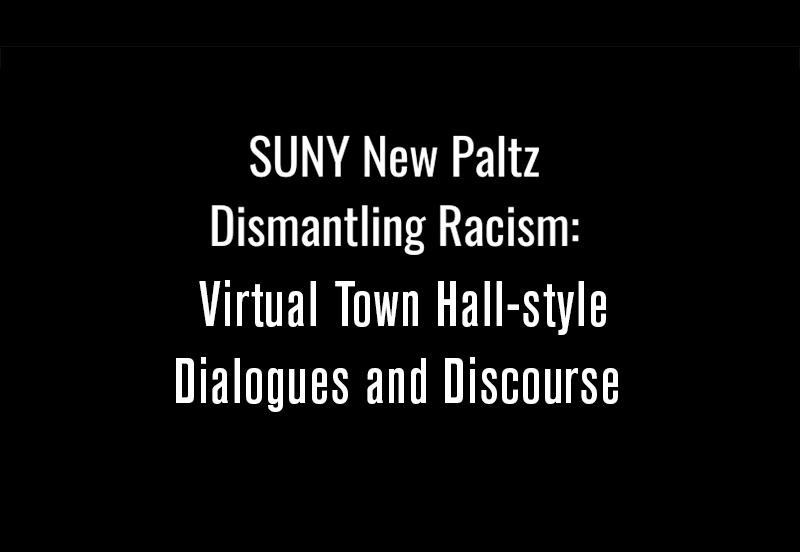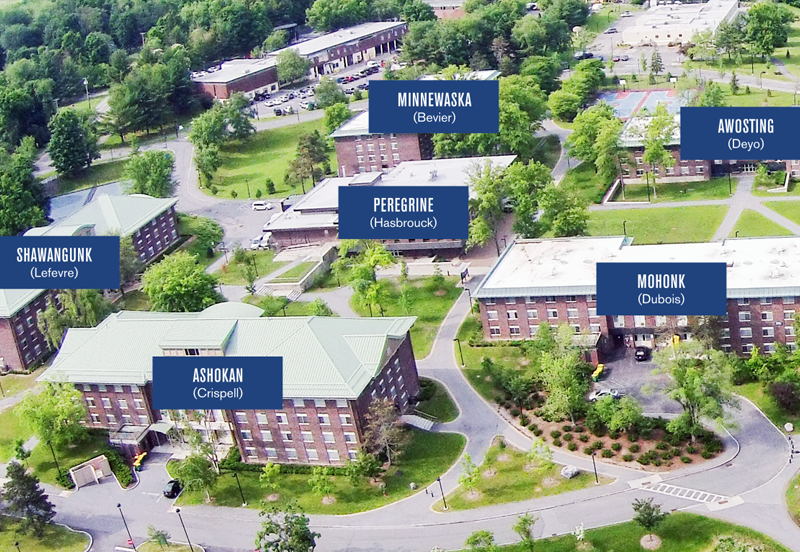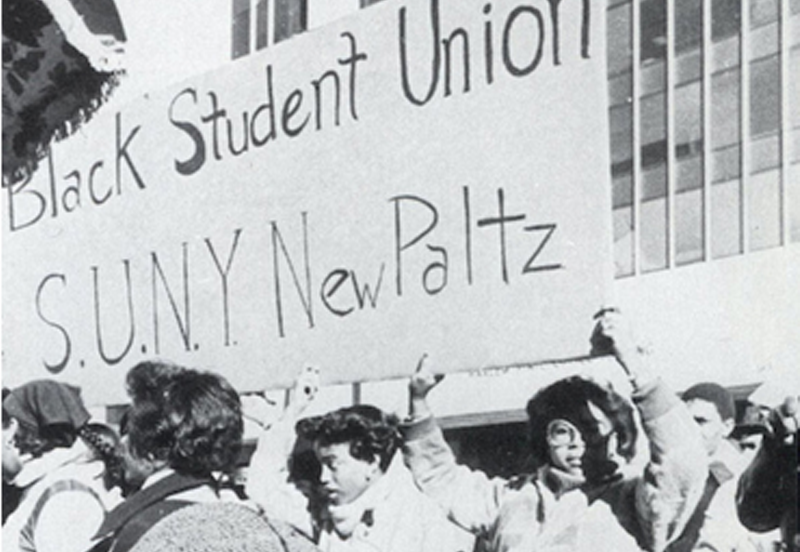IN THIS TOGETHER
Our journey and commitment to an anti-racist and more inclusive SUNY New Paltz
As a public institution of higher education, SUNY New Paltz is committed to providing high-quality educational experiences and opportunities for academic success for all students. Our commitments include remediating past and current inequities while establishing and maintaining practices and values of inclusion of all groups and individuals, particularly those who have been disadvantaged and excluded.
The University aims to forever change the way access and opportunity are provided to underserved groups and to create a community built on the values of inclusion, diversity, and equity, while fostering a community grounded in justice, civility, and respect. The University is committed to providing a range of opportunities for its community to learn about how individual contributions to diversity and inclusion strengthen the learning and working environment for all.
To build and sustain an equitable, diverse and inclusive campus community, SUNY New Paltz will:
- Recruit and retain diverse faculty, staff, and administrators
- Foster open and effective dialogue between all members and units in the Campus Community, while developing an awareness of our potential unconscious biases and our individual and collective responsibility to learn more about and engage in anti-racist work.
- Consciously provide members with strategic, educational, and experiential opportunities for cultural competency and inclusive leadership skill development. Encouraging the community to build coalitions across groups to leverage goals and spur systemic change.
- Recruit and retain a diverse student body
- Support individual members of our community in their efforts to advocate for public policy changes that advance social inclusion and cultural understanding
- Promote intercultural and international interaction, campus programming, community activities, campus spaces, and co-curricular experiences
- Engage with diverse alumni to support diversity and inclusion on campus, while supporting their success and involvement.
Diversity, equity, and inclusion are key to our mission of excellence. This work is multi-faceted, deliberate, thoughtful, often complex, but always necessary. We are committed to realizing the promise of this work by supporting diversity, opportunity, and access in our curriculum, creative and co-curricular activities, services, and administrative goals. We recognize the need to work through and eliminate barriers to the recruitment, retention, and advancement of talented students, faculty, and staff from historically excluded or underrepresented populations.
These ideals can be engaged openly and respectfully. This engagement should offer us the opportunity to be challenged, inspired, and transformed as both individuals and as a campus community. Ideas for programs and/or educational material are always welcomed.
Diversity is represented in all human differences through intersecting identities, race/ethnicity, sexual identity/orientation, ideas and world views, national origin, gender, religion, age, physical ability, socioeconomic status, and life experiences, to name just a few. Everyone comes to the discussion of diversity with varying levels of comfort, information, and experience. There must be a platform of respect for these different levels so that all may feel inclusion in the work. As an educational institution we must all take responsibility to create an environment where these differences can be recognized, celebrated, and explored under a common purpose to enrich lives here and beyond our campus. We must make room for the different levels of experience and comfort among members of our community in order to create safe spaces for expression and learning.
Inclusion is practiced when human differences are appreciated and embraced, and when there is an expectation of respect for the contributions these differences make to the life of the College. Inclusion is not just statistical, nor can it be satisfied through only visual representations. Inclusion is not achieved in a fixed point in time or through a single position. Inclusion is not the product of one program, one presentation, or one policy. The practice of inclusion is an ongoing responsibility of all who study and work here, and it must become part of our collective standard of conduct and nurtured by our community at all levels.
.png)




